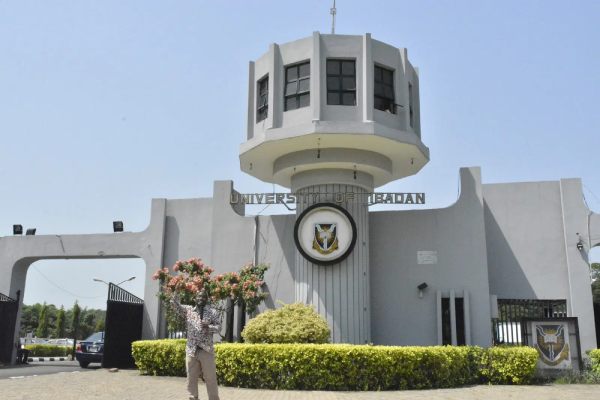Salaries of Lecturers in Nigeria: Monthly and Yearly Structure
We have made this article to inform you about the salaries of lecturers in Nigeria.
However, here are the monthly and yearly salary structures of lecturers in Nigeria.
- Lecturer II: Earns between N137,459 to N164,970 monthly and between N1,649,509 to N1,979,640 yearly
- Lecturer I: Earns between N173,333 to N223,668 monthly and between N2,079,996 to N2,684,010 yearly.
- Senior Lecturer: Earns between N257,625 to N371,292 monthly and between N3,091,505 to 4,455,506 yearly.
- Reader: Earns between N314,081 to N417,063 monthly and between N3,768,221 to N5,004,750 yearly.
- Professor: Earn between N381,695 to N501,680 monthly and between N4,580,349 to N6,020,163 yearly.
Besides, this list of salaries about the Nigerian lecturers only implies to Federal university lecturers and state university lecturers.

For the private university lecturers, their salaries are higher than what is mention in this article.
How are Nigerian Lecturers Salaries cumulated?
Nigerian lecturer are not happy that hey earn this small amount of money in a month or in a year.
But if you come to think about it.
Most of these lecturer salaries are just to fit with what the college are charging student as fees.
However, many federal or state universities pay higher than others.
For instance, a senior lecturer at the University of Lagos can earn up to N400,000
While senior lecturers in Abia State universities could earn up to N350,000.
Another thing that may influence how Nigerian lecturers is cumulated are;
- Numbers of publication.
- responsibilities or duties of your role.
- Your academic qualifications.
- The faculty and
- The university you are lecturing.
However, lecturers also create a chance for themselves a take some part-time job or contract as a source of extra funds.
In fact, when talking about the salaries of lecturers in Nigeria.
We are indirectly telling them that lecturers are not well paid and they need to be improved.
Nevertheless, you have been hearing of so many strikes in Nigerian federal universities and polytechnics which lead to the demands of an increase in salaries.
This happens because the bodies that governed the lecturer in federal universities.
Which is the Academic Staff Union of Universities (ASUU) and Non-Academic Staff Union of Universities (NASU) for non-lecturers?
How to become a Nigerian Lecturer?
Becoming a lecturer in Nigeria is not just about your degree but about what you were able to graduate with, skills and years of experience.
However, before you could think of applying for any lecturer role you first need to be teachable.
Your second taught should be on what grade you could be able to graduate with.
Besides, an average lecturer in any Nigerian university must have graduated with a minimum of the second-class upper.
While some institutions in Nigeria requires a first-class graduate to take up the role of lecturers.
In fact, most of the lecturers are retain students who graduated from the institution with an excellent grade.
If you are lucky to be among the student retain by your university.
You will need to start your journey of becoming a lecturer by taking the role of Graduate Assistance (GA).
With this role, you will be able to learn what basically is need by the university lecturers.
At this point, your salary will just be based on what the university board decides or how they intend to support your educational achievement.
Most of this retain student end up granted a scholarship to study aboard and gain a master degree.
However, if you are not lucky enough to be retained by your university.
Here are what you need to do in other to become a lecturer and earn the salaries of lecturers in Nigeria.
- More years of experience in your field of specialization.
- Graduate with at least second class division (2.1) or preferable first class division.
- Good skill and technique about teaching.
- Advanced research skills.
- Ability to communicate with students effectively.
- Good time management skills
- Excellent writing skills
- Have done good publishing research and analysis
- Ability to understand student behavior
- Good student evaluation progress
What is the role of Lectures?
You will agree with us that lecturers don’t only play the role of lecturing.
But has also extended to provide other services to lectures such as mentoring, advocating, research, publication and analyzing.
However, the main role of lecturers in Nigerian universities is to prepare educational material and deliver knowledge to students.
This also includes teaching both undergraduate and postgraduate students.
The lecturer could also extend their service in Nigerian universities to presenting of seminar papers and publication of books.
Besides, college teachers might also conduct research pertaining to their field of experience.
However, here are the role and job duties of lecturers in Nigerian universities.
- Designate, review and also assess coursework as well as assessments.
- Conduct a research study in the field of expertise as well as publish findings in scholarly journals or books.
- Process research study programs of college students.
- May serve as a consultant to federal government firms, personal people, sector, and various other companies.
- May conduct lab or area research study sessions.
- Prepare program materials and implement them to students.
- Lecture several training courses to undergraduate and postgraduate students.
How to make extra salaries for yourself as a lecturer in Nigeria.
If you feel like the salaries paid to lecturers in Nigerian universities are not enough for you.
You could try to utilize any of the above mentions ways to earn extra salaries for yourself as a lecturer in Nigeria:
- Apply as a volunteer for NGO’s.
- Produce and distribute learning material (handout, textbook, course material) for money which is not appropriate.
- You can take a contract role in some industries.
- Take part has an electoral officer when the nation is conducting elections.
- Open your own business
- Run a specialize company
- Become an investor.
The button line
Becoming a lecturer in Nigeria is not an easy task as it may sound.
However, we believe that the Nigerian educational system needs to be improved so that the salaries of lecturers in Nigeria can be better.
Besides, we will love to hear your own view about the salaries of lecturers in Nigeria.
Do utilize the comment and tell us what you think about lecturers’ salaries in Nigeria.



![Untapped Business In Nigeria [Updated]](https://myschoolscholarship.com.ng/wp-content/uploads/2024/11/untapped-business-in-Nigeria-img.jpg)


